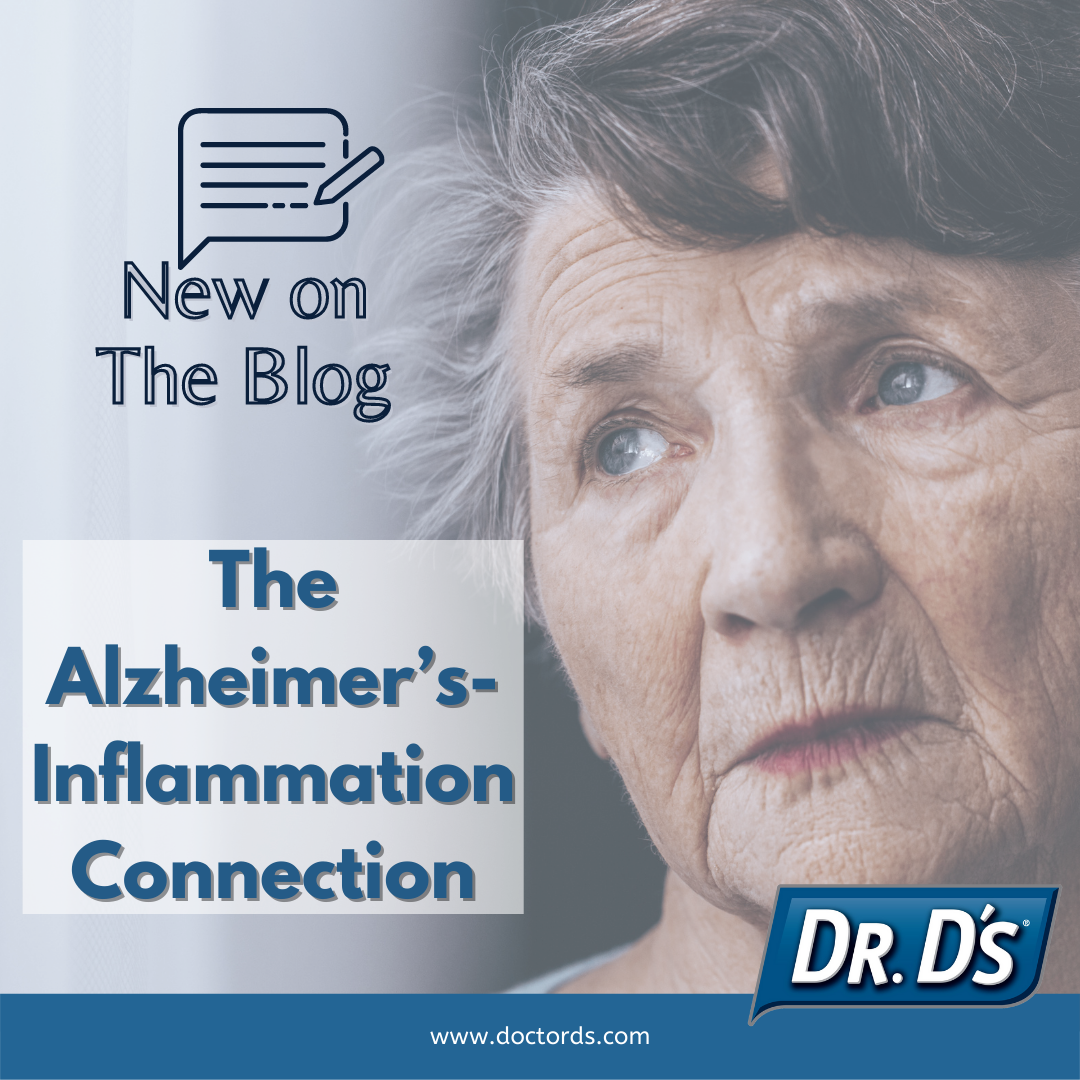
The Alzheimer’s- Inflammation Connection
Share
Alzheimer’s and Dementia are debilitating conditions that are heart-wrenching for the person suffering and their families. The prevalence of Dementia and Alzheimer’s is expected to rise by 66% in Canada by 2031. Approximately half a million Canadians are currently living with Dementia.
There is now scientific evidence showing a direct link between Alzheimer’s and Dementia and chronic inflammation. What’s truly alarming is that it is no longer just showing up in the older demographic like we once thought, we are seeing cases of Alzheimer’s and Dementia in younger and younger patients.
As always, let’s dive a bit into the pathophysiology, or the disorderly physiological process, that causes this terrible disease. Microglia are a special part of our central nervous system’s immune response and are constantly on the look-out for signs of infection or toxins, including a protein called beta-amyloid. When these neuro immune cells detect a threat, they become activated to attack the damage, release pro-inflammatory cells, and call on support from other microglia. Normally, this process does not last long, and the activated neuro immune cells go back to a deactivated state of surveillance once the threat passes But in Alzheimer’s and Dementia, research suggests that these neuro immune cells become overactive, increasing their production of inflammatory cells and clear less of the original damage that caused them to be activated in the first place. Therefore, a vicious cycle ensues as microglia begin to cause the neuroinflammation they are designed to defeat…and their ability to clear away damage diminishes! The result is more and more damaged neurons and a buildup of beta-amyloid plaques, which can lead to the onset of Alzheimer’s disease and other neurological conditions.
If you have been following along with our journey at Dr. D's, you already know about my long search to provide something to patients as an extension of my practice to help them get to the root of chronic disease and be healthy for as long as possible. This strong connection between chronic inflammation and chronic disease kept turning up in my research…and so did turmeric.
Turmeric is one of nature’s most powerful anti-inflammatory and anti-oxidant, as confirmed by over 6000 research studies. Turmeric has not only been shown to break down these plaques associated with Alzheimer’s/Dementia, but also exhibits a very strong neuroprotective effect on brain cells and can even help them to regenerate! In fact, a double-blind, placebo-controlled study published in the American Journal of Geriatric Psychiatry showed that of the 40 adults between the ages of 50 and 90 who had memory issues, those who took turmeric daily for 18 months showed a 28% improvement in their memory, and also had mild improvements in their mood, compared to the control group. Turmeric supplementation seems to be a promising adjunct to the little treatment options that currently exist for Alzheimer’s and Dementia…but what’s more effective than treatment is PREVENTION. And I’ve been saying this all along. Preventing diseases like Alzheimer’s and Dementia, or delaying its onset should be our goal. There is merit to incorporating turmeric supplementation to your health regime to help prevent chronic, maladaptive inflammation and thus chronic disease.
Sources:
1. Alzheimer Society Canada. Latest information and statistics. https://alzheimer.ca/en/Home/Get-involved/Advocacy/Latest-info-stats
2. The Power of Turmeric: A Healing and Preventative Guide, Dr. Fabio Di Stefano, Publisher Production Solutions, 2018
*THE CONTENT IN THESE BLOGS IS STRICTLY EDUCATIONAL AND NOT INTENDED TO BE A SUBSTITUTE FOR PROFESSIONAL MEDICAL ADVICE, DIAGNOSIS, OR TREATMENT. ALWAYS SEEK THE ADVICE OF YOUR PHYSICIAN OR OTHER QUALIFIED HEALTHCARE PROVIDER WITH ANY QUESTIONS YOU MAY HAVE REGARDING A MEDICAL CONDITION OR YOUR GENERAL HEALTH. ALWAYS THOROUGHLY READ AND FOLLOW INSTRUCTIONS ON THE LABELS OF YOUR SUPPLEMENTS AND/OR MEDICATIONS. NOTE THAT THE CONTENT IN THESE BLOGS MAY BECOME OUTDATED AS NEWER RESEARCH IS PUBLISHED.